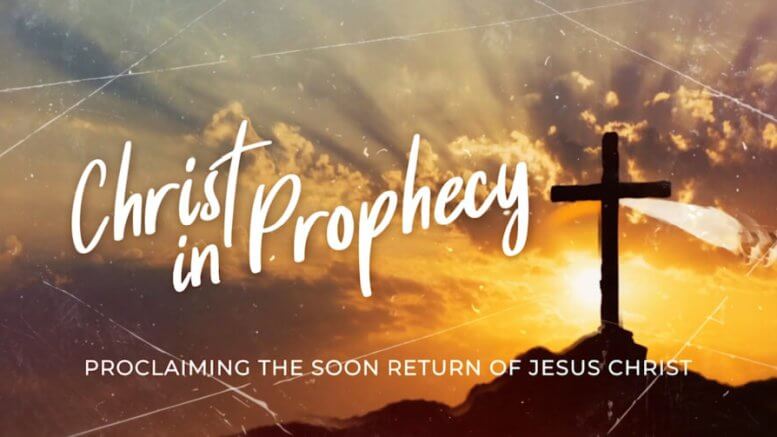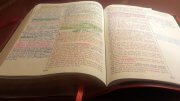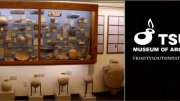We are continuing our series from Part 1 exploring the fulfillment of nineteen Christmas prophecies that prove that Jesus Christ is indeed the long-awaited Messiah. Knowing this, we can place our faith and trust in Him as our Savior and Lord.
8. The Timing of His birth (Genesis 49:10)
Tim Moore: Now that we’ve touched on the genealogy of Jesus Christ, let’s now cover some of the other Christmas prophecies that point to the specifics of how, when, and where the Messiah was to be born.
Nathan Jones: The eighth prophecy concerns the timing of the Messiah’s birth. We read about this in Genesis 49:10. “The scepter shall not depart from Judah, nor a lawgiver from between his feet, until Shiloh comes; and to Him shall be the obedience of the people.” The Jewish people once had the right to have punitive authority over their court systems, but eventually the Romans took control and that authority was lost to them. The Jewish courts no longer had the right to sentence by capital punishment. This prophecy reveals that Shiloh (the Messiah) had to come before the Jewish people lost the “scepter,” which happened early in Jesus’ lifetime.
Tim Moore: People wonder what that word Shiloh means. Really, it’s just a form of the word peace. It means that the One who would be the Prince of Peace had to come prior to the Jews losing their ability to rule over themselves. That’s exactly why the Pharisees and the High Priest had to bring Jesus before the Roman Pontius Pilot to actually get Jesus convicted and executed, because the Jews had lost that right by the time Jesus was ministering on the earth.
9. Place of His Birth (Micah 5:2)
Tim Moore: Micah 5:2 prophesies the place of the Messiah’s birth. “But as for you, Bethlehem Ephrathah, too little to be among the clans of Judah, from you One will come forth for Me to be ruler in Israel. His times of coming forth are from long ago, from the days of eternity.”
In my New American Standard Bible, the translators capitalized the word “One,” pointing to the Messiah. They’ve also capitalized the word “Me” because it’s the Lord God speaking. “His” again is capitalized, not just because the word starts the sentence, but because it’s referring to the Messiah. These words point to the fact that this coming One who would be born in Bethlehem came from eternity past. He has always preexisted, therefore the Messiah is also God, and it’s demonstrated right in that passage.
Nathan Jones: Why the little tagline “Bethlehem Ephrathah”? Well, there were two Bethlehems at the time. There was one way up north in the land of Zebulun and there was one down south in Judah. Ephrathah points to which of the two Bethlehems the Messiah would be born. It’s kind of like we have multiple Springfields or multiple Maple Streets. The prophecy identifies that it’s not the Bethlehem in Zebulun, but rather the one in Judah. So, it’s really a very precise prophecy.
And, that’s what you get in the Bible — precise prophecies. There are no other religious texts out there that have specific and also fulfilled prophecies like we have with the Bible, which is proof that the Bible is the only Word of God.
10. A Star Will Signal His Birth (Numbers 24:17)
Tim Moore: The Wise Men — the Magi — came to Jerusalem because they had been following the Star of Bethlehem, as we call it. They inquired, “Where is it that this Jewish king, this messiah, will be born?” The Hebrew scribes knew exactly where because they knew about Micah’s prophecy concerning Bethlehem. They also had read Numbers 24:17. “I see Him, but not now; I behold Him, but not near; a Star shall come out of Jacob; a Scepter shall rise out of Israel, and batter the brow of Moab, and destroy all the sons of tumult.” And so, to Bethlehem is where the Lord led the wise men by a special star.
What’s sad is how the Scribes and Pharisees, though the Bible doesn’t record this, but it appears as if they didn’t even bother to track the handful of miles — just a half-dozen miles or an hour or two walk — from Jerusalem to Bethlehem. They couldn’t be bothered to go and see what these wise men had traveled so from far the East to see in seeking the King of the Jews.
11. He Was Born in the Flesh (Isaiah 9:6)
Nathan Jones: Most likely the Magi were Persians. So, we’re talking about a four-month journey from Persia to Israel. Whereas, you are right, King Herod couldn’t be bothered to walk the handful of miles down to Bethlehem. These Magi were likely not even believers in Yahweh God, but they knew the signs and they could read the prophecies. They knew the teachings that the prophet Daniel had left them during the Babylonian captivity.
Therefore, they knew that the Jewish Messiah would be coming and that He’d be born in the flesh. As Isaiah 9:6 proclaims, “For unto us a Child is born, unto us a Son is given; and the government will be upon His shoulder. And His name will be called Wonderful, Counselor, Mighty God, Everlasting Father, Prince of Peace.”
I love the description of the Messiah in this passage. He will be called Wonderful Counselor, Mighty God, Everlasting Father, and Prince of Peace. What human could possibly fulfill all of those different requirements? And, in being born as a human, He still had to come in the flesh. So, the Messiah would be a mixture of divinity and humanity.
Tim Moore: The Wise Men followed the star because they were discerning. They were looking for the Messiah because again they had most likely learned from Daniel and some of the other Jewish exiles who had lived in Babylon about the prophecies pointing to the coming Jewish Messiah. They could calculate the timing based on Daniel’s Seventieth Week prophecy and so know the general season of this coming King’s birth. And then, when the star appeared, they realized that it was pointing to the fulfillment of the prophetic word, and so obediently followed it.
Their example is why we emphasize the reading, studying, and understanding of Bible prophecy, so that we can discern the very times in which we are living right now. Knowing we are living in the end times from the Messiah’s nearly 500 Second Coming prophecies, they show us that Jesus is coming soon and very soon.
12. His Virgin Birth (Isaiah 7:14)
Tim Moore: Another Old Testament Christmas prophecy comes from Isaiah 7:14 about how the Messiah could be identified by yet another sign. “Therefore the Lord Himself will give you a sign: Behold, the virgin will conceive and give birth to a son, and she will name Him Immanuel.”
When the angel appeared to Mary, as told in Luke 2, she specifically understood what a miraculous event this would be if she could become pregnant, because as she pointed out, “I’ve never been with a man.” She testified that she was a virgin, and her celibacy made sure her pregnancy would become an exact fulfillment of Isaiah’s prophecy.
Nathan Jones: The identity of the Messiah really now begins to be narrowed down. The family line of the Messiah must go through Abraham, Isaac, Jacob, Judah, and King David, but then He must also be born of a virgin. The only person who could be miraculously conceived must also only be divine. Only one woman ever gave birth as a virgin, and it was always only ever going to be Mary. The child was conceived by the Holy Spirit when He came over her, so that Joseph her betrothed wasn’t involved. Later, of course, Mary and Joseph had children all on their own.
In the third and final part of this series about the nineteen Christmas prophecies, we will explore the remaining verses.





